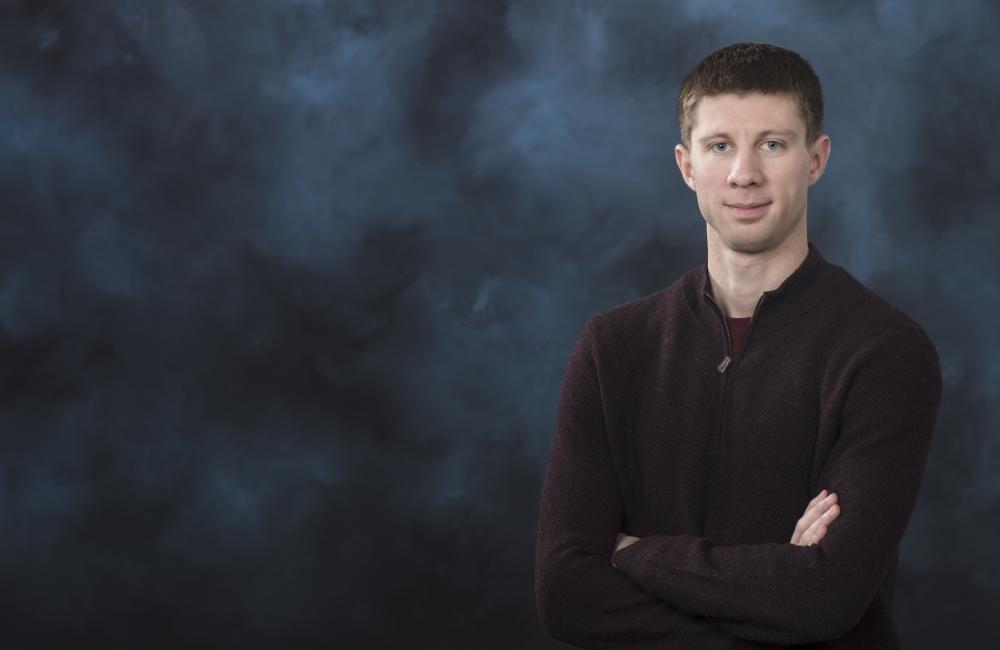ORNL Cybersecurity Researcher Mike Huettel was recently promoted to warrant officer in the National Guard and aced the 6-month Cyber Warfare Technician course, earning the title of Honor Graduate. Credit: Carlos Jones/ORNL, U.S. Dept. of Energy
Mike Huettel is a cyber technical professional. He also recently completed the 6-month Cyber Warfare Technician course for the United States Army, where he learned technical and tactical proficiency leadership in operations throughout the cyber domain. At the Department of Energy’s Oak Ridge National Laboratory, Huettel leans on his military training to better protect computer networks against attacks.
“Cyber researchers look at code to figure out how things work,” said Huettel. “What I learned in the Army is helping me see a system from multiple angles and build creative methods to protect against intrusions.”
Huettel became interested in cyber operations after 12 years in the Army. His first specialization, explosive ordinance disposal, didn’t have many opportunities outside the military. A colleague turned him on to cyber, and he was hooked.
The Army taught Huettel how to defend networks, preventing hackers or adversaries from gaining access to information. With this knowledge, he applied to be a cyber researcher at ORNL and found a career working in cyberspace.
What sets ORNL apart from typical cyber security research firms, Huettel said, is the range of talent that is available. “System administrators and mathematicians are contributing to solving cyber security problems,” Huettel said. “We have to share what went wrong and how to fix it.”
With his cybersecurity experience at the ready, Huettel was recently promoted to warrant officer in the National Guard and completed the cyber warfare course. He scored 100% on all technical exams, achieving the highest GPA out of all students in his class and receiving the title of Honor Graduate.
As a warrant officer, Huettel is interested in expanding the capabilities of his team by going beyond basic cyber training. His goal is to bring opportunities to soldiers and build their holistic approach to cybersecurity.
Huettel feels like he’s just getting started with where he wants to take his cyber career. He is pursuing opportunities to learn more about identifying vulnerabilities and seeking projects that push his abilities and bring a new angle to cybersecurity. Ultimately, he wants to identify, publish and disclose a vulnerability through the Common Vulnerability Enumeration database. “Having the technical knowledge to discover a reportable vulnerability means I’ve reached a new level of ability,” he said.
UT-Battelle manages ORNL for the Department of Energy’s Office of Science, the single largest supporter of basic research in the physical sciences in the United States. The Office of Science is working to address some of the most pressing challenges of our time. For more information, please visit energy.gov/science.




